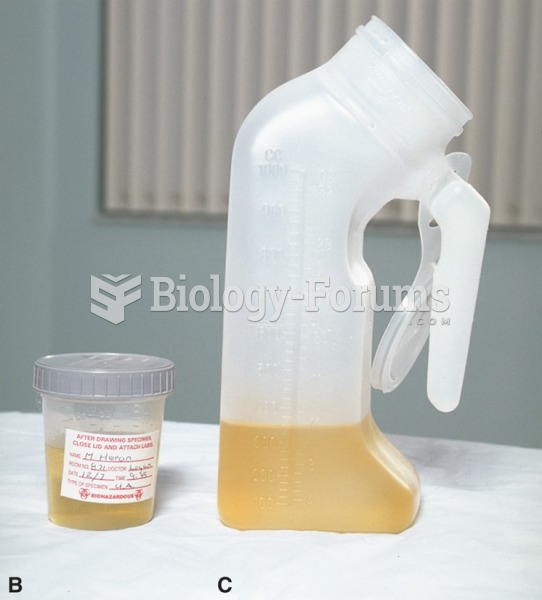|
|
|
The Romans did not use numerals to indicate fractions but instead used words to indicate parts of a whole.
Egg cells are about the size of a grain of sand. They are formed inside of a female's ovaries before she is even born.
Patients who have been on total parenteral nutrition for more than a few days may need to have foods gradually reintroduced to give the digestive tract time to start working again.
According to the FDA, adverse drug events harmed or killed approximately 1,200,000 people in the United States in the year 2015.
When Gabriel Fahrenheit invented the first mercury thermometer, he called "zero degrees" the lowest temperature he was able to attain with a mixture of ice and salt. For the upper point of his scale, he used 96°, which he measured as normal human body temperature (we know it to be 98.6° today because of more accurate thermometers).







